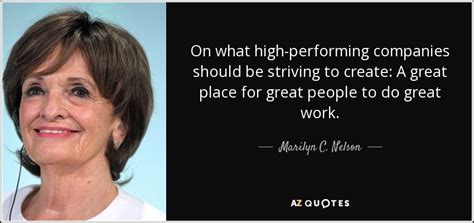A Quote by Charles Platt
The blunt tools of legislation or union power can force a corporation to pay higher wages, but if employees don't create an equal amount of additional value, there's no net gain.
Related Quotes
Requiring the payment of higher wages will lead to a loss of some jobs and a raising of prices which drives companies to search for automation to reduce costs. On the other hand, those receiving higher wages will spend more (the marginal propensity to consume is close to 1 for low income earners) and this will increase demand for additional goods and services. Henry Ford had the clearest vision of why companies can actually benefit by paying higher wages.
Union members not only earn higher median wages; they are more likely to have paid sick leave, short-term disability, and employer-provided child care. Giving people a voice at work - the ability to organize and negotiate for their fair share of the value they helped create - is absolutely essential to a growing, vibrant middle class.
I feel constantly the tension of the quarterly cycles, the drive to produce shareowner value at the cost sometimes of customer value and employee value. [But] if you take equal care of the employees, they will take equal care of the customers and then we will get an equal or better opportunity for our shareowners.
Equal pay for equal work continues to be seen as applying to equal pay for men and women in the same occupation, while the larger point of continuing relevance in our day is that some occupations have depressed wages because women are the chief employee. The former is a pattern of sex discrimination, the latter of institutionalized sexism.
What I am anxious to do is to get the best bill possible with the least amount of friction.... I wish to avoid [splitting our party]. I shall do all in my power to retain the corporation tax as it is now and also force a reduction of the [tariff] schedules. It is only when all other efforts fail that I'll resort to headlines and force the people into this fight.


































